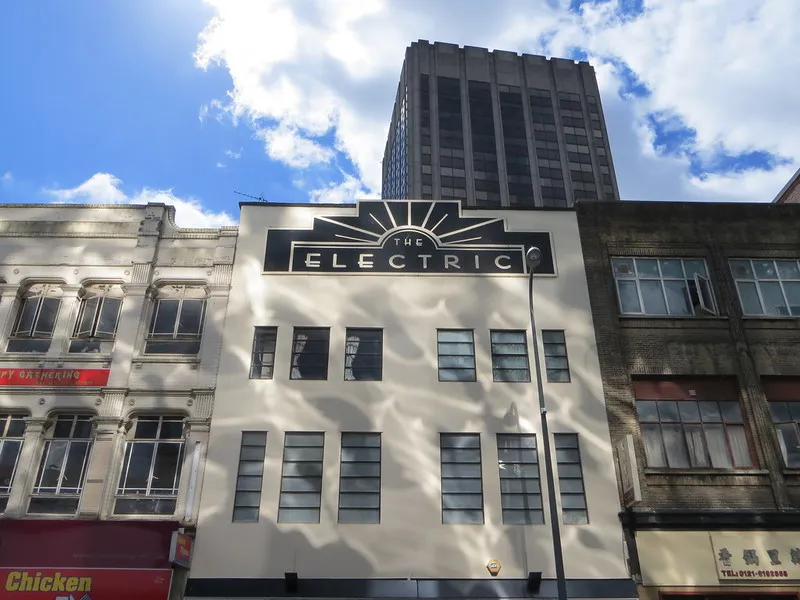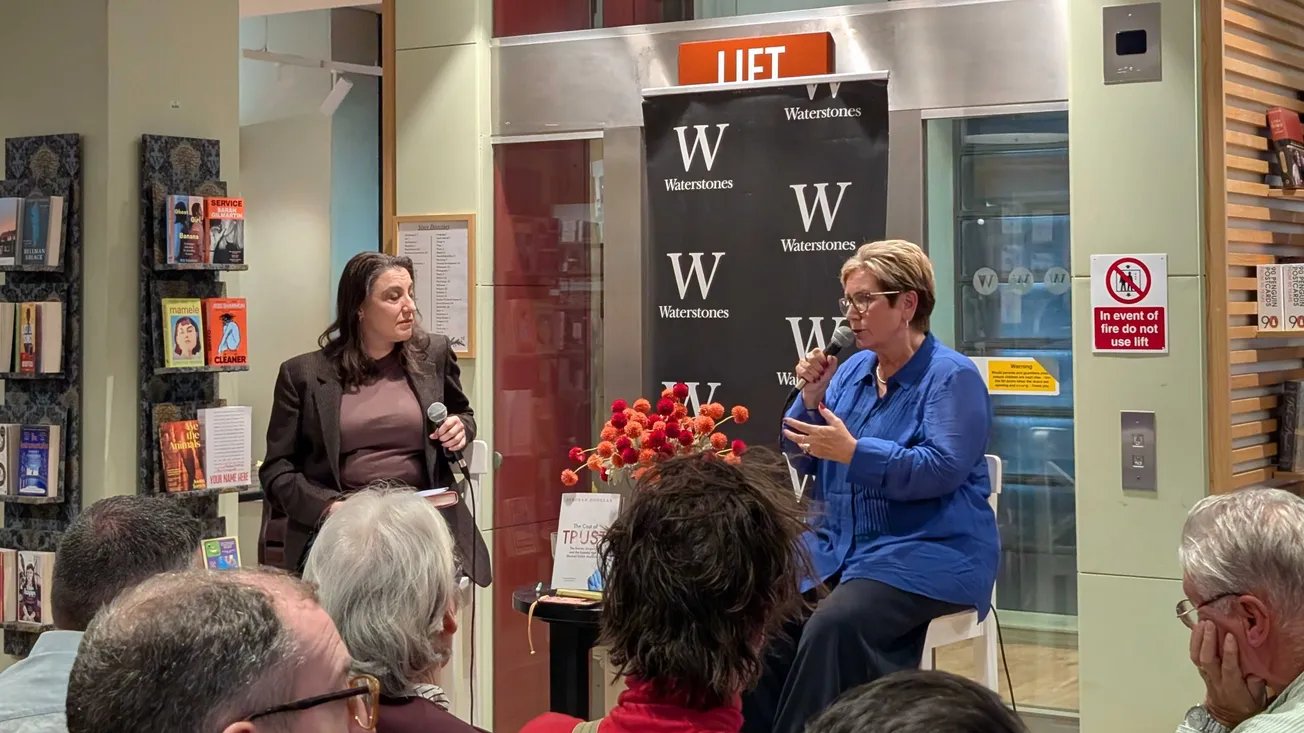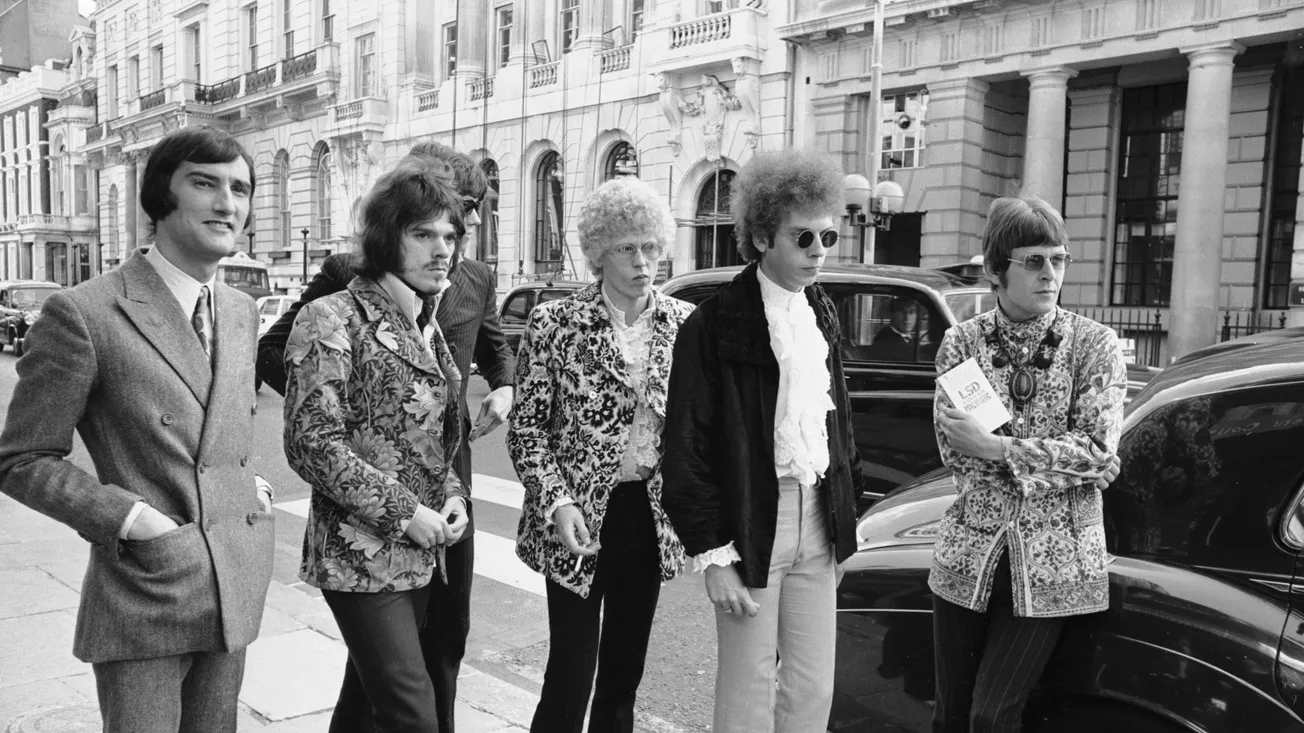Getting the truth about the future of Station Street out of many of the various players involved is like drawing blood from a stone. And trust us — there are a lot of players involved. A pen and paper might come in handy.
Looming over everything is a tower standing 50 storeys tall. Well, a phantom tower, anyway — at the moment, it exists only as a CGI render. If constructed, though, it would dominate Station Street, and its construction could mean the demolition of the country’s oldest working cinema, the Electric. But nobody wants to lay claim to it.
When Ian Francis, who runs the Flatpack Festival, voiced these concerns in a blog post three weeks ago, after the Electric unexpectedly closed, it was like a bomb had gone off. A massive petition launched to “save” the street, metro mayor Andy Street waded in saying he would “investigate”. Various national newspapers picked up on the story. A headline in the Guardian claimed it was “a tipping point for the city”.
This was a story about a cinema, sure; one that started operating in 1909, which once showed silent movies with a piano backing. But it was also a story about the Birmingham of today, and a city at a crossroads. Would it have to choose between its heritage and the rapid development of high-rise blocks? Would Birmingham, in a bid for growth, simply succumb to the whims of bigwig developers?

The Dispatch was told early last week the developer with plans to build the tower, Manchester-based Glenbrook, had shown off their designs in a meeting with various architects and Birmingham Open Media (BOM), an arts organisation, in June last year.
But when we asked Glenbrook to confirm whether the meeting had taken place, they told us it hadn’t. “There may be some confusion. No meeting has taken place with local groups and no CGIs or drawings have been shown,” was the second of two denials.
This was strange to Karen Newman. Because in June last year Newman — who works for BOM — tells me she sat in this meeting with Glenbrook, as well as their architects at Howells, as they presented a series of CGI renders showing their designs for the street. Sure enough, there was a tower (45 stories, though they said it could go up to 50). At the meeting, Glenbrook’s Sunny Johal spoke of how a planning application would be submitted in early 2024 with the hope of having “diggers on site” by September.
The Dispatch has also seen an email from Johal thanking the attendees of that meeting for “making the time this afternoon to catch up on the interface between the Crown / BOM development and Station St.” Moreover, a second attendee, who asks not to be named, says she also sat in and saw Glenbrook’s designs, and the all-controversial tower.
When we put this to Glenbrook, it was third time lucky. Now, they told us a meeting had in fact taken place after all, but the computer generated images for the tower weren’t theirs. Rather, they belonged to the previous developer: Bruntwood.
That seems dubious at best. The Dispatch understands that Bruntwood did carry out preliminary investigations into the street, which included a crude early visualisation, but concluded it wouldn’t be commercially viable without disrupting the heritage sites of the Crown pub and Electric cinema. Those present at the meeting told us much more advanced designs which Glenbrook had drawn up themselves were presented. One source told us they were “appalled” Glenbrook would attempt to use Bruntwood to deflect from their own plans. When I asked Bruntwood whether the phantom tower might indeed be theirs, they denied having anything to do with the scheme.

So why is Glenbrook so keen to distance themselves from this development?
Let’s lay out the background. Most of the land on Station Street is owned by the Vyse’s, an extremely wealthy family whose links to Birmingham date back to the 1800s. Their wealth is inherited, and none of the new generation live in Birmingham. Glenbrook are the Manchester-based developers with current designs on the street. Despite their protestations to the contrary, the would-be 50-storey tower that sent the city into a mad panic a few weeks back appears to be their design.
Whether or not Glenbrook actually intends to knock down the cinema to make way for the tower isn’t clear. In fact, one source who spoke to The Dispatch told us Glenbrook is more than aware of the furore demolishing the cinema would cause, so had discussed keeping it in place, or at least keeping the facade (they privately told one local figure they understood knocking it down entirely would cause a “shitshow” — they weren’t wrong there).
Anyway, if you want to understand what’s really going on with the Electric Cinema, you actually have to start a little way up the road. The Crown pub, launchpad for the careers of Ozzy Osbourne and Black Sabbath — very much “Birmingham’s Cavern”, if you ask those involved in the efforts to save it — is the catalyst to the future of Station Street. Much like the Electric, this is also a site people hold very dear.
Because if Glenbrook wants to build their tower that may or may not threaten the cinema, then the footings of said tower would (according to several sources) involve at least partially demolishing the Crown pub. This complicates matters further for Glenbrook. In a statement sent to us, they said the company’s “interest does not include the Crown pub”, and as such any rumours of a potential demolition were untrue.
That’s as it may be. The freehold on the Crown, that crucial part of the jigsaw, is owned by a company called Toyoko Inn. But at a networking lunch in November 2023, Glenbrook’s Sunny Johal told Karen Newman that they were negotiating to purchase the Crown, as well as the nearby Shaftesbury House site and car park, to extend their scheme, and that they had approached the West Midlands Combined Authority (WMCA) to help them with their funding gap. The issue is that Glenbrook doesn't currently have the cash to do this. Sources have speculated that the Howard Vyse Estate (controlled by the Vyse family) might be able to acquire the freehold on Glenbrook’s behalf, but for now, that’s merely a rumour.

Newman is aware of all of this, because BOM (Birmingham Open Media), which she heads up, are the other group with a long-standing interest in the Crown. They’ve been working on plans to restore the iconic pub. But back in July last year, BOM lost the financial backing of Birmingham City Council, which was by then in the midst of its well-publicised financial crisis.
So what you had was a butting of heads — BOM and Glenbrook — that acted as a kind of microcosm for the major debate hanging over Birmingham’s regeneration. Newman and BOM wanted a heritage focus, with a “centre for digital inclusion”. Glenbrook wanted a high-rise residential scheme. It’s a contrast that gets to the heart of what kind of city Birmingham wants to be.
The council's bankruptcy wasn’t the only stumbling block for BOM, though. They next turned to WMCA themselves, but despite Andy Street’s public claims about preserving the street’s heritage, members of his own team clearly favoured Glenbrook’s residential approach.
One of Street’s go-to senior officers at the combined authority was one of them. According to Karen Newman, this officer expressed their preference for a residential scheme and would only consider a valuation of the site on that basis, essentially disregarding BOM’s own valuations, carried out by chartered surveyors. Either way, it was not long after she first learned of Glenbrook’s interest in the Crown that Newman received an email from the combined authority telling her that her own funding application had been rejected. BOM had run out of road.
A senior BCC officer is also said to have encouraged Glenbrook’s proposal. In an email to us, Glenbrook denied a rumour that said BCC officer had travelled to Manchester to meet their team, but did say they had met a separate senior BCC officer.

Which is to say it was all looking pretty rosy for Glenbrook and Sunny Johal. Then, last week, the pendulum swung away from them.
Since late last year, Jez Collins — founder of the Birmingham Music Archive — has been at the forefront of a campaign to win the Crown Grade II-listed status. When The Dispatch spoke to Collins a little over a week ago, he was insistent: if the Crown can be saved, then so can the whole street. The problem was that the government was dragging their feet. The new culture secretary, Lucy Frazer, was insistent on having eyes on every single listing application. As such, a process that would usually take weeks had taken months. In that time, the Electric’s previous owner Kevin Marwick had lost his lease, a mighty furore had broken out and saving Station Street was now all the rage, with national press coverage, petitions and Andy Street’s interventions. All well and good, Collins thought, but it’s a little more complicated than just saving an old building or two for its own sake. Who will shape the future of Station Street? Whose hands will it be in?
Last week, we fired off an email to Lucy Frazer’s team asking why there had been extensive delays with the listing decision. Within two days, the picture had changed again. The Crown had been listed. Street was toasting Jez Collins’ hard work on Twitter.
Collins had told me before that breakthrough that the listing of the Crown would inevitably trigger “a rethinking of that whole street”. Now that has happened and the Crown is protected, Glenbrook may struggle to build the tower — which must be little bother, seeing as they claim there never was a tower to begin with. But while the pub may be protected, with BOM’s scheme to restore it now dead in the water, it’s not entirely clear what will happen to it.
“Saying ‘Save the Electric’ is all well and good, but who is gonna come forward and make it happen?” Collins said to me last week. “The same goes for the Crown. Who is gonna come and give us the money to make sure it’s reopened and is a working, functioning jewel in the crown? At the moment, we’re not getting that discussion.”
So that’s where we stand. Has Station Street been saved? Not really. The Crown has, at least — the bulldozers are at bay for now — but the street needs a plan. Petitions alone won't be enough. Perhaps someone will come forward with a genuine vision, tying in the street’s remarkable assets, not just the Electric and Crown but also the third prong to the trident, the 1913-constructed Old Rep theatre. Or maybe none of that will happen, and the phantom tower of Station Street will finally rise.
To get great local journalism from The Dispatch in your inbox, join our free mailing list below, or support us (and get lots of members-only stories too) by becoming a paying member.








Comments